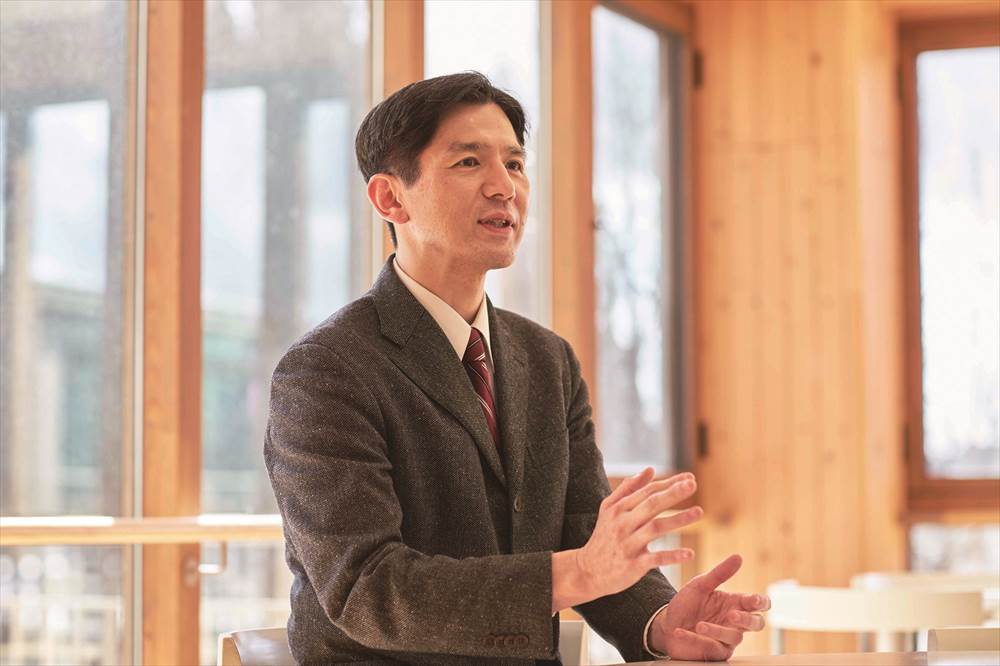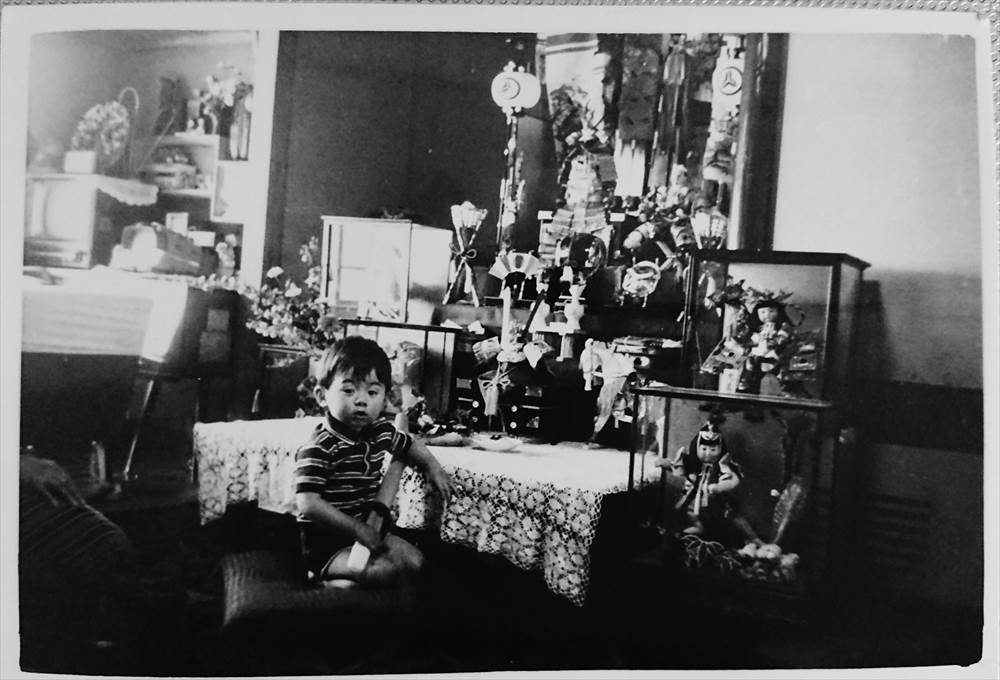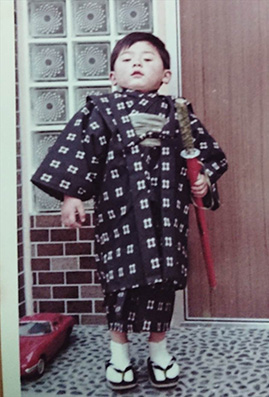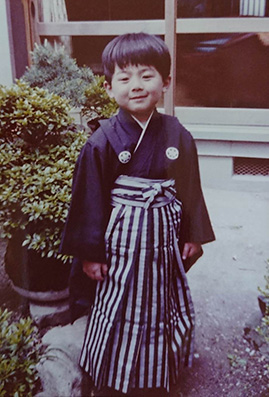365体育备用网址_365体育博彩-直播|官网
AIU Voices
【Faculty Voices】 Episode 6: “My ‘Secret Taste’” – Dr. Norihito MIZUNO
You may have seen the faces of our faculty members, be it in a face-to-face classroom, an online classroom discussion, the university brochure, or possibly, through their professional outputs. But do you know how they really are as an individual?
This Faculty Voices series aims to acquaint you with some of our unique faculty members in the form of a relay essay by the faculty themselves. You will have a chance to get a glimpse of the faculties’ personal agenda, concept on life, philosophy, and memories, as well as their area of profession and research theme.
The sixth episode of the Faculty Voice Series is from Dr. Norihito Mizuno.
Professor Mizuno is the Director of the Global Studies Program since April 2016. He joined AIU in April 2007 after earning his PhD and teaching at several universities in the United States. Dr. Mizuno specializes in East Asian Studies, particularly the history of Japan’s relations with East Asian neighbors in the early modern and modern eras. In recent years, his research focuses on Japanese communities and educational institutions for Japanese children in various parts of East Asia from the late 19th century to the end of World War II.
Dr. Mizuno has offered us a message under the theme My hobby you may not understand.

My “Secret Taste”
It’s not that I’ve been keeping it a secret, or that I’m not even sure if it should be called a “taste (or hobby)” or not. It’s not necessarily true that I have nothing else regarded as so, but to tell the truth, I’ve been a big fan of history dramas since even before I had reached the age of discretion. I would not even dare to resist being called a “freak.”
With slight exaggeration, I have never gone a day without watching a history drama since my childhood. Even while away from home on business trips, I still spend at least one hour watching history dramas on the weekdays and am quite busy with watching recorded ones on the weekends. At the time of writing this essay, I have yet to finish watching about 10 episodes of the seventeenth and eighteenth seasons of the popular TV series, Mito Komon, originally aired in the late 1980s. After entering college in Tokyo, I got addicted to Kabuki, and my at least twice a month visits to the Kabuki-za continued until graduation. It’s too far from Akita to Kobikicho,*? which is my only and biggest complaint about living here.
Editor’s Note *?An old town name in Tokyo referring to the location of Kabuki-za, the famous Kabuki Theater.
Surrounded by Boy’s Festival decoration and dolls
I am also extremely fond of BBQ eels that I even think that I might be the reincarnation of Saito Mokichi*? as I would eat even more frequently than every three days if my wallet can afford it. My love for this elongated fish is, however, an exception in its edible form: the jellied eels. Likewise, history dramas comprise many genres, and there are some “jellied eels” for me. When it comes to Kabuki plays, I love all genres with the super Kabuki as a mere exception. In television history dramas and history movies, I preferred flamboyant sword fights and stories about the Warring States period in my youth, but as I grew older, I tended to prefer so-called human-hearted history dramas based on the works of Yamamoto Shugoro, Ikenami Shotaro, Fujisawa Shuhei, and so on over caricatural kanzen-choaku*? ones. On the other hand, I am less interested in yakuza and ninja stories. I am physiologically uncomfortable with stories of Shinsengumi, just as I detest natto and cigarettes. My preference also tends to depend on the age of production. Many of the history movies produced in the so-called postwar golden age of the 1950s and 1960s are quite entertaining and worth watching. In addition to the outstanding performances of the actors, the scale and grandeur of the sets cannot be compared to the more recent films. After all, the atmosphere created by works of that era is markedly different from that of later periods. This is one of the reasons why I became addicted to the “swamp” of kabuki, because of its “atmosphere.” On the other hand, with the exception of Onihei Hankacho and the NHK history dramas (with the exception of the Taiga dramas), many of the works from the bubble economy era onward lack that “atmosphere” and have become wig-wearing modern dramas.
Editor’s Note
*? Poet and psychiatrist in early 20th century Japan known for his obsession of eels, a traditional Japanese dish.
*? Stories outlined in poetic justice, where good deeds are rewarded and the evil punished.Kimono with splashed pattern and his favorite red-sheathed imitation sword in his hand.
How or why did I get stuck in the “swamp” of the period drama? I should say perhaps that I was born out of it, rather than stuck in it. Even before I entered kindergarten, I showed little interest in things that children of the same age would have enjoyed. Plastic, aluminum, or wooden toy swords were my favorite. I was happy to have my mother or grandmother dress me in kimono and play with those toy swords. Every year I eagerly awaited the coming of the Boy’s Festival in May and the procession of the three great local warrior heroes as part of the Nagoya Festival held in my hometown Nagoya in October. I don’t personally remember but heard that I once imitated a lower-ranking Daimyo retainer called yakko on the street suddenly, using an umbrella as a hair spear and saying “Step back! Step back!” It can be quite common for children to be drawn into history dramas. I gained more friends after entering kindergarten and began to show more interest in things that were “current.” I also came to accept the reality that samurai no longer existed in the late 20th-century society, though with some psychological pain and anguish. The child is father to the man, however. A sense of discomfort with or even aversion to modern or new things never completely disappeared from the mind of the boy who now has reached the age to know the decrees of Heaven*?.
Editor’s Note *? The age of fifty, as in the famous phrase by Confucius.
In the backyard of my parents’ house, wearing black crested kimono for Shichi-Go-San
The reason why I have made a living by toying with history is no doubt related to my love for history dramas since my early childhood, and I believe they will continue to be an inseparable part of my life. However, history dramas, both on TV and films, are in crisis. Also in the case of Kabuki, it is said that more vacant seats in the Kabuki-za Theater have been noticeable in recent years, and the COVID-19 pandemic has added to this. It’s hard to foresee how the stage, including Kabuki, would accommodate itself to life “With Corona.” Problems always have causes, and perhaps there are solutions. I have a lot to talk about the causes of the predicament of history dramas and possible breakthroughs but would like to leave this topic for another day.
Click here to learn more about AIU faculty.
Click here for more episodes from the Faculty Voices Series.



